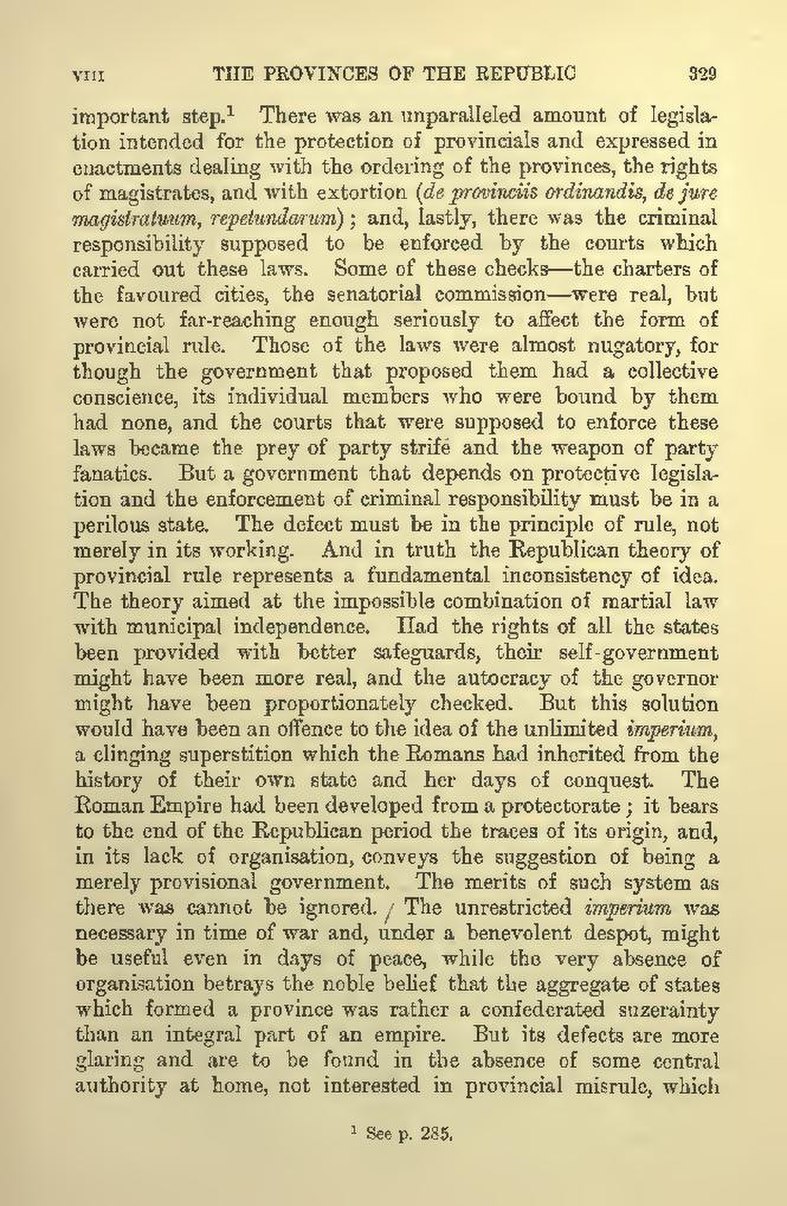important step.[1] There was an unparalleled amount of legislation intended for the protection of provincials and expressed in enactments dealing with the ordering of the provinces, the rights of magistrates, and with extortion (de provinciis ordinandis, de jure magistratuum, repetundarum); and, lastly, there was the criminal responsibility supposed to be enforced by the courts which carried out these laws. Some of these checks—the charters of the favoured cities, the senatorial commission—were real, but were not far-reaching enough seriously to affect the form of provincial rule. Those of the laws were almost nugatory, for though the government that proposed them had a collective conscience, its individual members who were bound by them had none, and the courts that were supposed to enforce these laws became the prey of party strife and the weapon of party fanatics. But a government that depends on protective legislation and the enforcement of criminal responsibility must be in a perilous state. The defect must be in the principle of rule, not merely in its working. And in truth the Republican theory of provincial rule represents a fundamental inconsistency of idea. The theory aimed at the impossible combination of martial law with municipal independence. Had the rights of all the states been provided with better safeguards, their self-government might have been more real, and the autocracy of the governor might have been proportionately checked. But this solution would have been an offence to the idea of the unlimited imperium, a clinging superstition which the Romans had inherited from the history of their own state and her days of conquest. The Roman Empire had been developed from a protectorate; it bears to the end of the Republican period the traces of its origin, and, in its lack of organisation, conveys the suggestion of being a merely provisional government. The merits of such system as there was cannot be ignored. The unrestricted imperium was necessary in time of war and, under a benevolent despot, might be useful even in days of peace, while the very absence of organisation betrays the noble belief that the aggregate of states which formed a province was rather a confederated suzerainty than an integral part of an empire. But its defects are more glaring and are to be found in the absence of some central authority at home, not interested in provincial misrule, which
- ↑ See p. 285.
